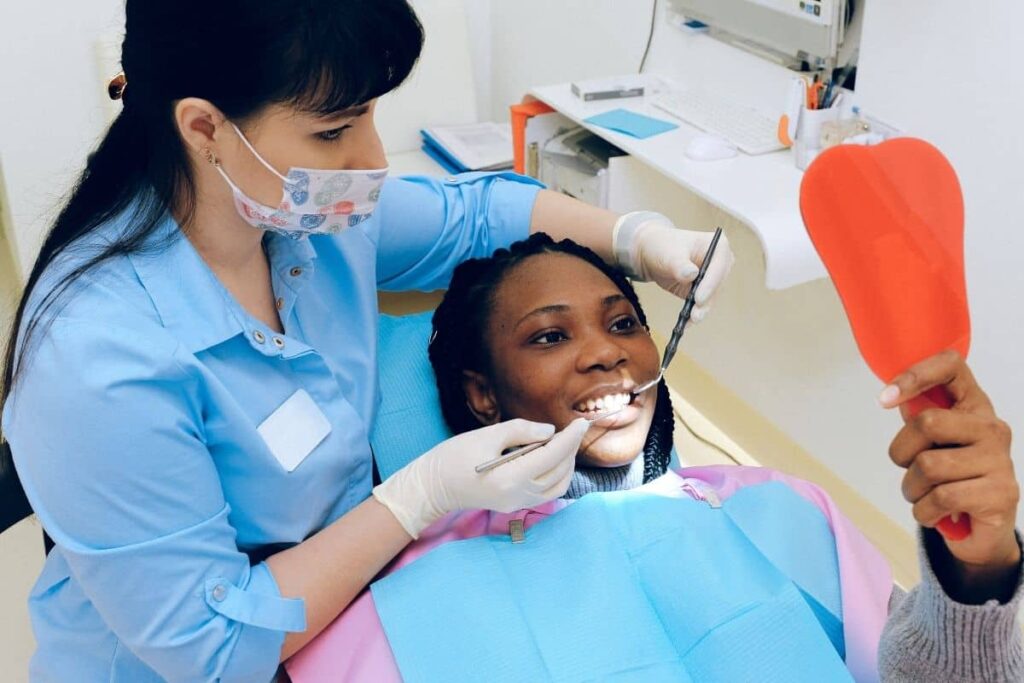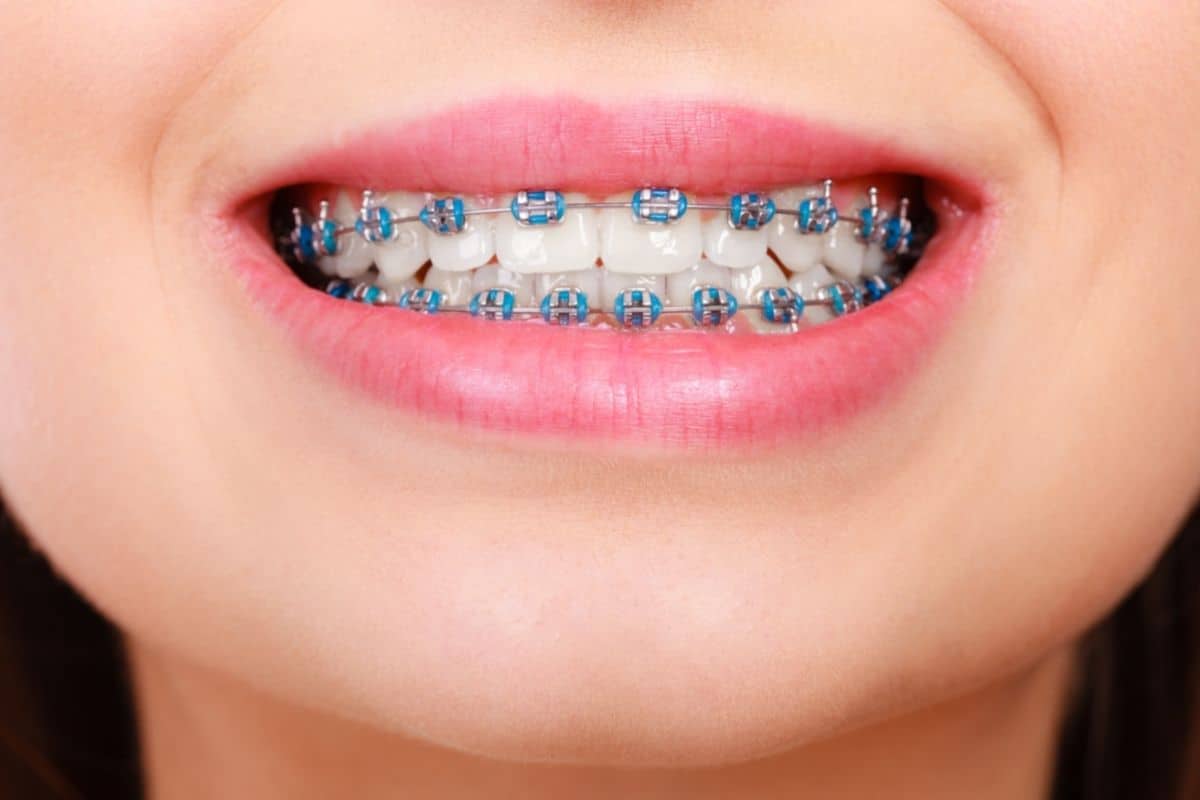Ah, braces – the necessary yet dreaded part of teenage life.
A lot of people require having braces installed when growing up and some adults even need braces to help improve their teeth’s health.
However, having braces is not cheap and to have them installed can cost quite a lot of money per head.
So, if you have found out that you or someone in your care needs braces, you are probably wondering if there’s any way you can have the costs covered by your Medicare.
Here, we are going to discover if this is possible and what kind of braces and orthodontic care Medicare will cover.
So, let’s dive in!
Table of contents
Braces And The Different Care You May Need

First, it’s important to understand there are actually a few different types of braces that have different effects and purposes. This is because what type of braces you are having can have an influence on what cost Medicare will cover.
So, let’s learn more about the different types of braces so you can find out what kind you or the person in your care will be recommended to have installed.
The first type of braces is conventional. These are the most common types of braces that we are all familiar with. They are made from metal wires and bands that aim to realign teeth and change the position of a person’s bite.
The second type of braces is self-ligating. These look a lot like conventional braces except there are no bands, instead the wire is tightened through the clip-style brackets.
The third type is lingual. These braces are attached to the back of the teeth instead of on the front, although they act the exact same way. The only difference is that they are pretty much invisible.
And the final type is aligners. These are clear casing known as a ‘tray’ that fit over your teeth and help realign them over time.
Some people only wear their aligners when they sleep, and some people may even need multiple ‘trays’ over time to keep repositioning their teeth.
As you can see from the information above, a lot of braces are installed for purely cosmetic reasons. However, some orthodontics do recommend them (especially to teenagers) because it can help avoid issues in the future such as teeth grinding, sleep apnea, and decay.
So, because braces are clearly so important, does this mean that they are covered by Medicare?
Does Medicare Cover Braces?
Unfortunately, Medicare does not cover braces in most scenarios. Neither Part A or Part B covers braces for patients of any age, but there are some dire situations where a person may be eligible to have their costs covered by Medicare.
This event only really happens if the braces are needed due to some kind of accident or injury. This is because the braces are a part of a ‘restorative orthodontic procedure’ which is vital to correcting someone’s teeth so they can avoid future injuries, diseases and accidents.
Basically, if there’s no way you can function unless you get braces, then Medicare should cover the costs.
So, if you were in an accident that resulted in your teeth being pushed up into your head (yes, that can happen) then the cost of the braces used in that kind of situation would be covered by Medicare.
However, those braces your thirteen year old kid needs to fix a few crooked teeth? You will have to cover that cost yourself.
How To Pay For Braces

We are going to be honest: braces are expensive.
To have a single set of braces installed, you could end up paying around $7,000 – never mind the aftercare and what it costs to have them later removed.
So, it’s completely understandable when a lot of people say they simply cannot afford to pay for braces. Luckily, there are some ways you may be covered for the cost of your braces even without the help of Medicare.
There are a lot of insurance companies with plans you can sign up to that are specifically designed for dental and orthodontic care.
This means that if you are already signed up to this kind of health insurance, then you should be able to have the cost of those braces covered with no issue. If you are eligible for Medicaid, then children and those under the age of 18 are covered.
Other Alternatives
Again, these braces need to be medically necessary so it’s worth checking with your child’s dentist or orthodontist to see if they think the braces will qualify as ‘medically necessary’ for Medicaid.
You can also approach charities and nonprofit organizations that aim to help more people access braces and other necessary forms of dental and orthodontic treatment.
Smile For A Lifetime is a popular nonprofit organization that helps children from low-income families and kids between the ages of 8 and 19 can apply for this program.
However, there are a few fees that can cost $500 all together – but this is a huge discount to the thousands of dollars you would end up paying if you wanted to cover the costs yourself.
Another charitable organization that helps kids between the ages of 10 and 18 get braces is Smiles Change Lives, but their fee can reach $600 and each patient must reach a criteria when it comes to dental hygiene, cavities, and financial requirements.
If you are an adult seeking braces, then you’re out of luck when it comes to free braces programs.
A lot of charities and programs aim to give kids access to free braces, but perhaps you could check into your local orthodontic college or university to see if they offer free or discounted care (including braces) to help teach their students using clients.
Conclusion
So, unfortunately Medicare does not cover braces unless those braces are used in a serious, necessary, orthodontic procedure.
This means they only cover braces applied as treatment for accidents and injuries rather than to prevent future misalignments.
It is possible to find ways to source free braces elsewhere, so check the advice above and good luck!
Frequently Asked Questions
Braces are worth the cost because of the many health benefits it helps you to retain. It can be tough to maintain optimal oral health when teeth are not as straight or aligned as they could be.
The best age to get braces will depend on the child themselves. This is because everybody grows at different rates; some children will go through puberty quicker and earlier than others. However, a general rule of thumb is your kids should look at getting braces between the ages of 9 and 14.
While the average time a person will wear braces is between 1-3 years, orthodontia is tailored specifically to each individual person by design.
